Heavenly engineering against the horrors of war: Ukrainian Aljoscha's "Brain Paradise"
Aljoscha (1974), born in Ukraine as Oleksii Potupin, is a visual artist known for his large-scale conceptual installations that explore concepts related to biology, life theory, and bioism, which represents a utopian ideal for the creation of new forms of life. Through drawings, sculptures and installations, Aljoscha addresses not only the big philosophical and scientific questions concerning life, but also the idea of alternative models for its existence. His art, like a great mirror, acts in its ability to reflect the complex facets of the human condition, in every aspect, and just when the world landscape is teetering toward instability, his creativity emerges as a beacon of hope.
In this turbulent era in which politics and art are intertwined as never before, this is not the first time Aljoscha’s art has embraced this connection with unparalleled fervor. Indeed, one day before the start of theRussian invasion of Ukraine, the artist stood naked in the shadow of Kiev’s imposing national monument: in the background of the statue, he held two pink forms he had created days earlier, representing another incarnation of his “bios,” sculptures that symbolized new manifestations of life.
But this commitment of his has not stopped: in the face of the horrors being manifested by the war between Russia and Ukraine, in October 2023 Aljoscha, together with Russian artist Ilya Fedotov-Fedorov, conceived, created, and made available to the public Blooming Skin on Brain Paradise, an installation that is the result of a collaboration charged with meaning, expressive force, and communicative value. Made of PETG acrylic glass and composed of about sixty composite, almost weightless, self-sufficient and open biosculptures, the work is the result of the two artists’ thoughts and experiences: it is connection, freedom and the manifestation of shared ideals, as well as the subjectivity and sensibility of both. It is a praise of art’s ability to manifest itself as a dynamic field for free thought, a fertile ground for inspiring reflections and alternative perspectives.
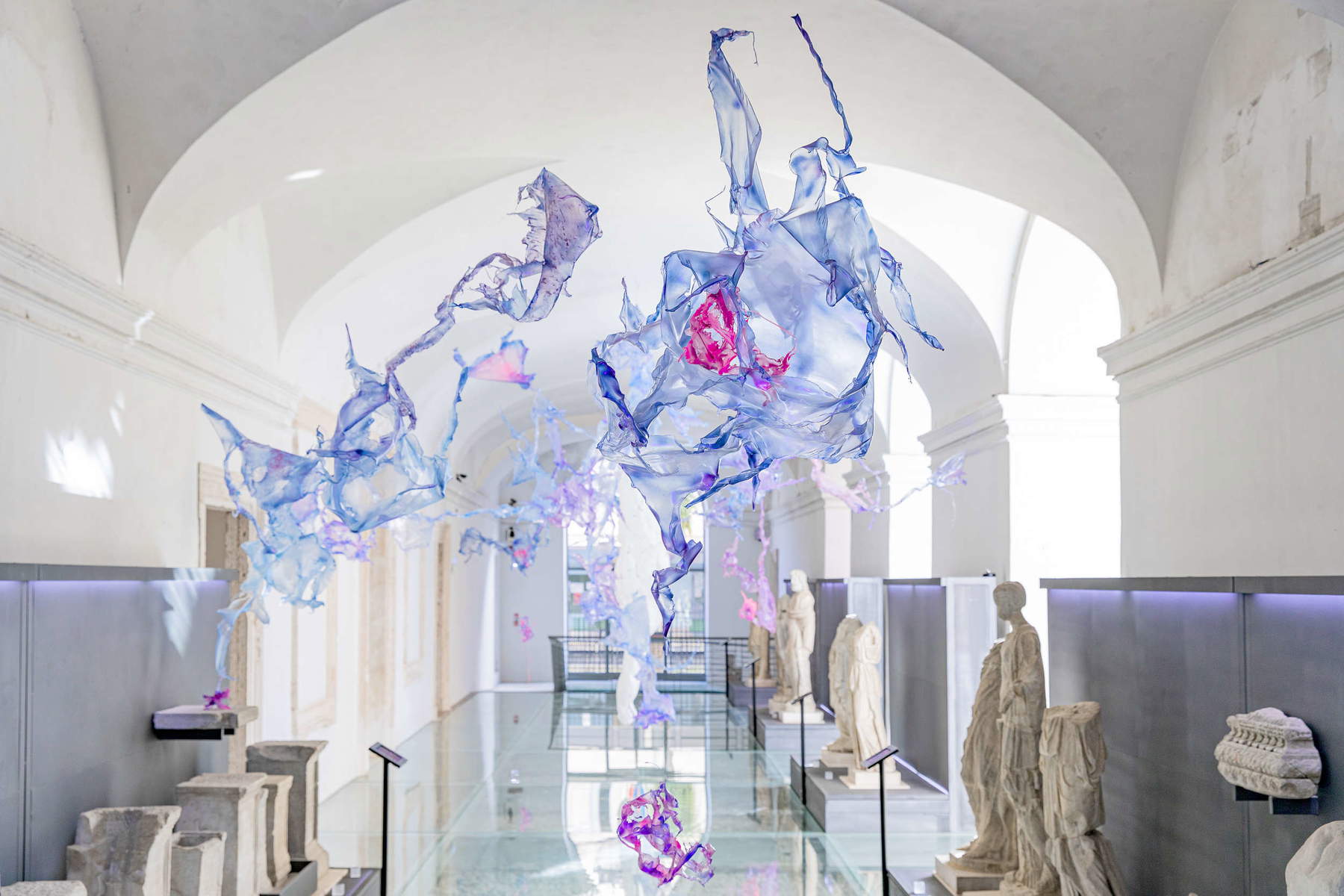
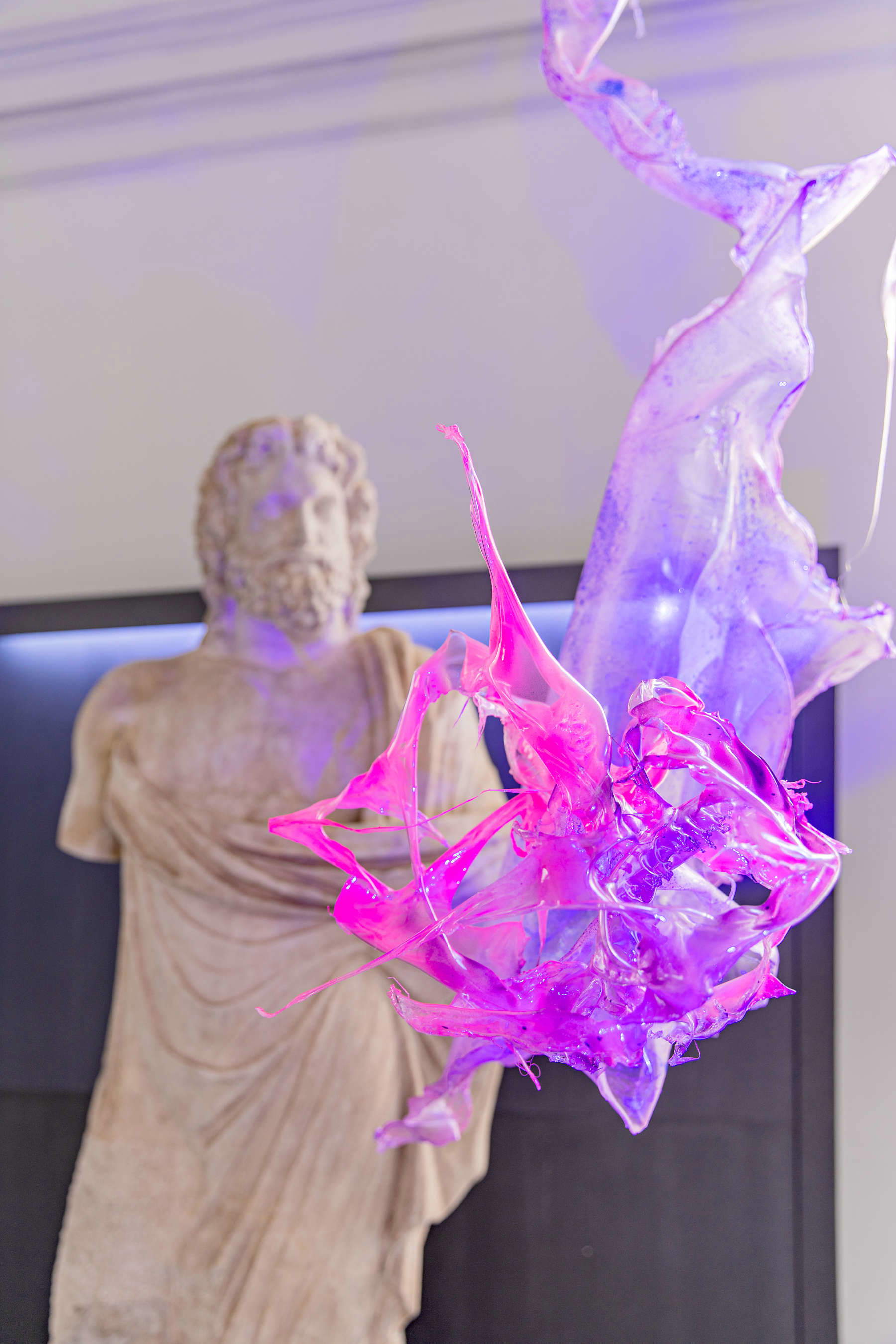
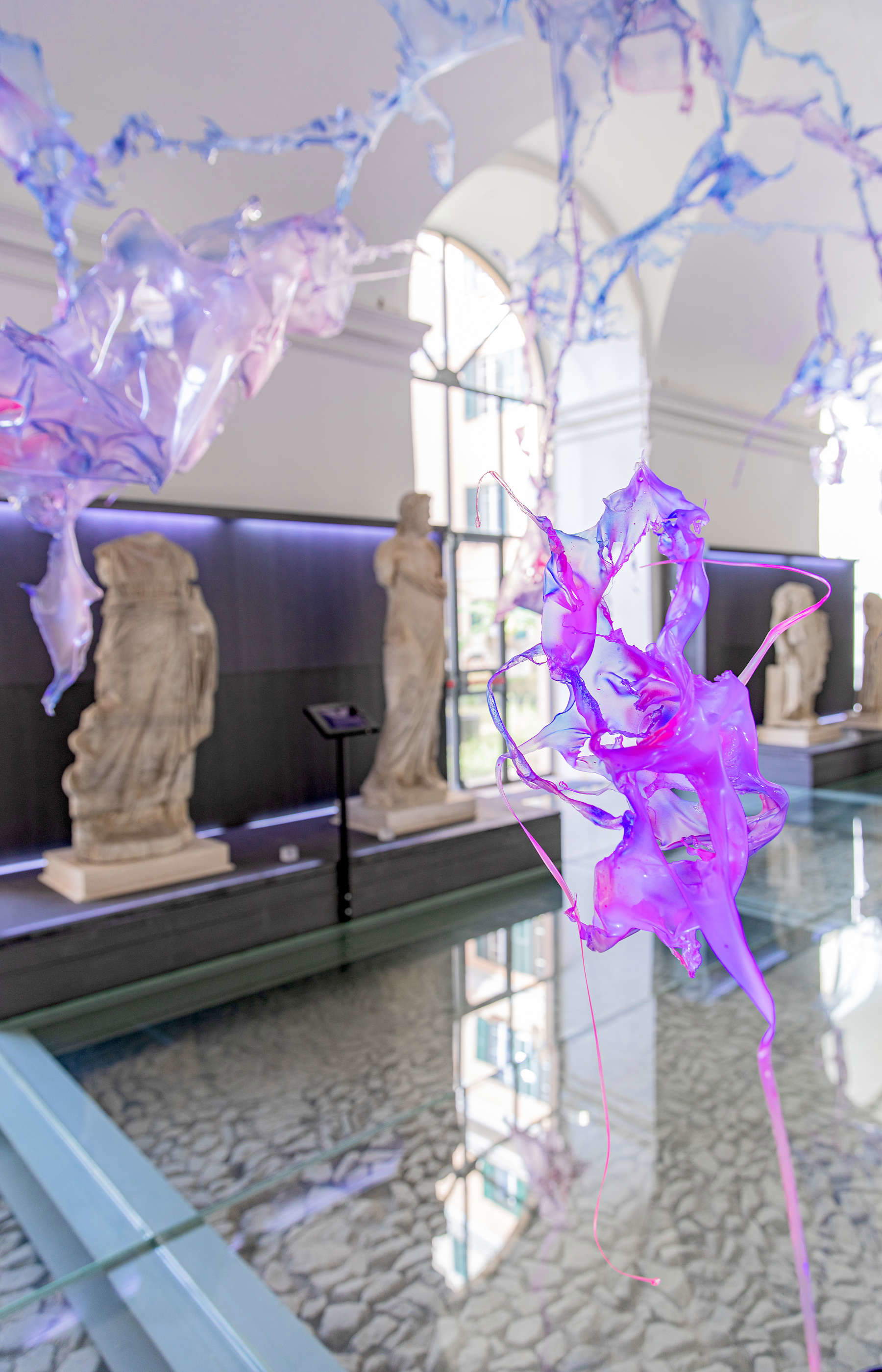 Aljoscha,
Aljoscha,The work manifests as an unknown creature that seems to be kept afloat by an inner impulse: individual sculptures, as beings, possess their own character and diversity, and their alterocentric self-organization and complexity, as in a living social entity, lead to cohesion. A community composed of singular individuals united with each other, evolving and placing themselves in a transformative relationship with their environment.
Human beings are often driven to aggression, no matter how unreasonable and insane their beliefs may be.In the wake of this consideration, and in stark contrast to the inhumanity and complexities of today’s reality generated by the ongoing war, the entire work can be perceived as a revelation of peaceful coexistence. However, it would not be correct to limit it to a question of war and peace, as the work intends to embody a precise parallel path that condemns the ongoing political disaster through the manifestation of the artists’ individual absolute.
The installation consists of two important aspects: the manifestation of humanism and diversity and the understanding of the complexity of life. The synergistic work of the Ukrainian and Russian artists can be described as a utopia, as strong is the desire to find paths of peace, kindness and hyperthyme through the creation of unknown and unseen prototypes of future organic life. Indeed, the artist believes that “humans, as hypersocial organisms, seem doomed to eternal dissatisfaction and searching. [...] In contrast to the ongoing war and cruelty between our countries, I firmly believe in the possibility of peaceful and creative coexistence and an understanding based on scientific insights into the unknown worlds of our genetics and biology, their hidden contexts, and the bioethical possibilities of improving our world.”
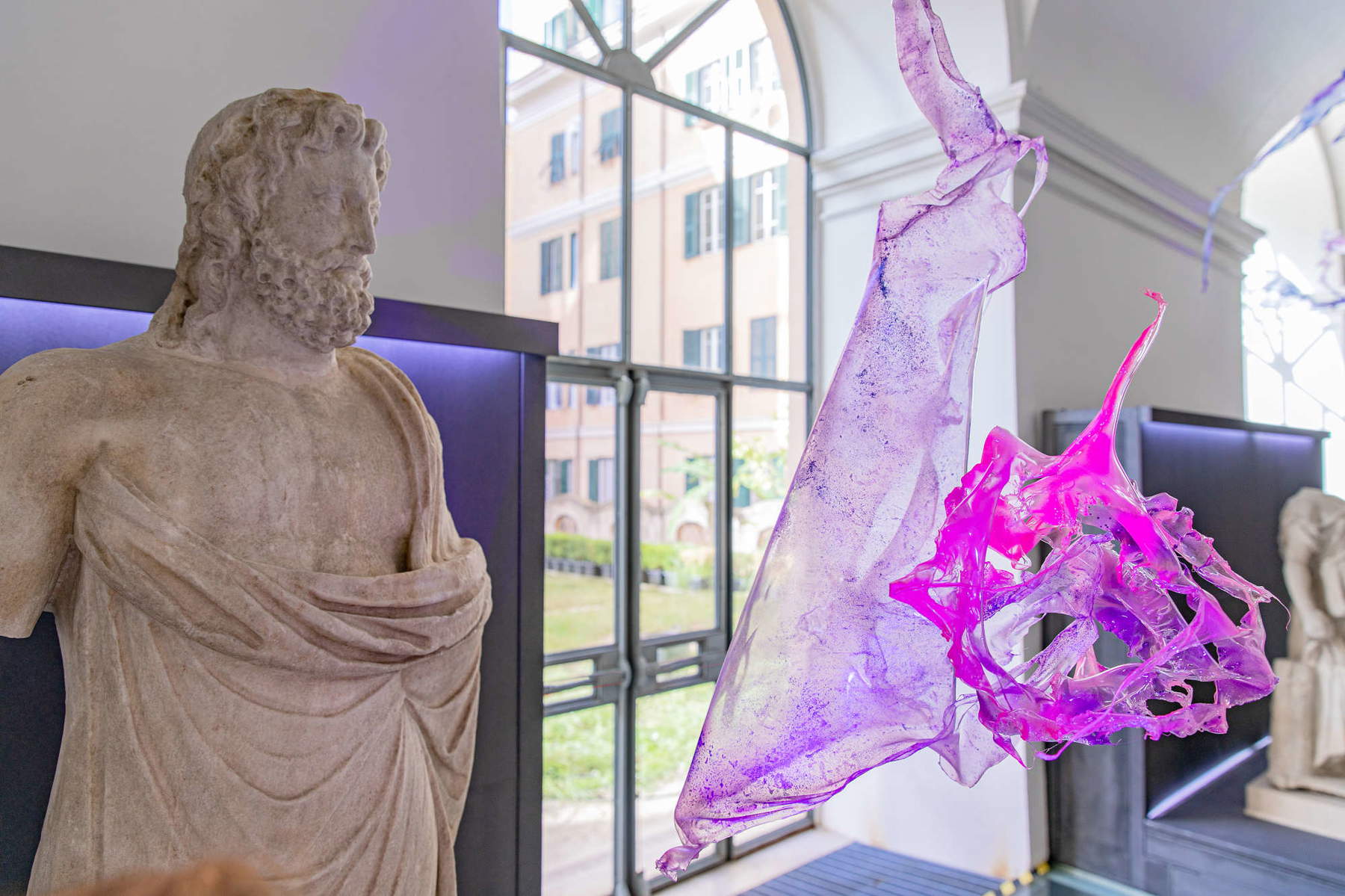
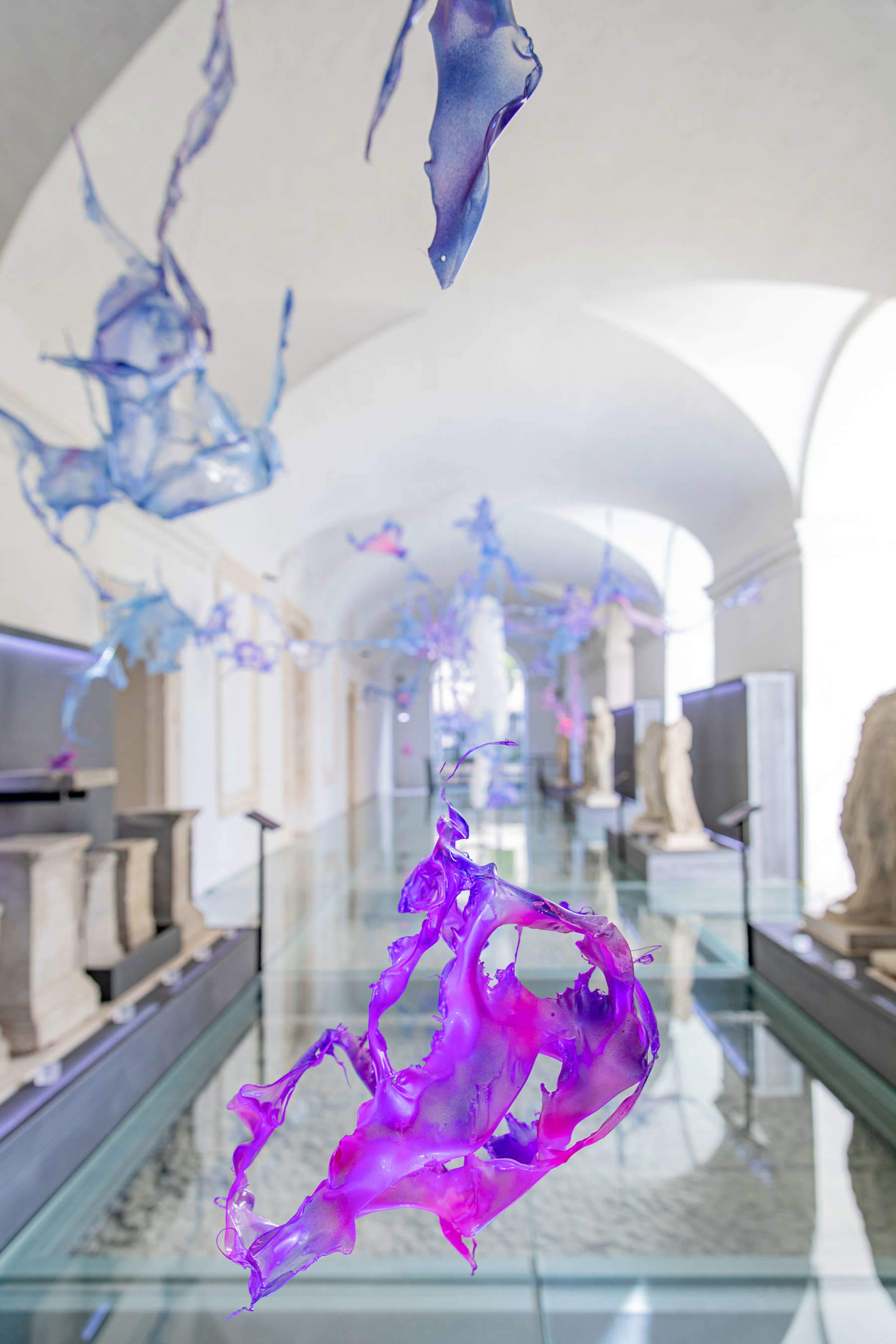
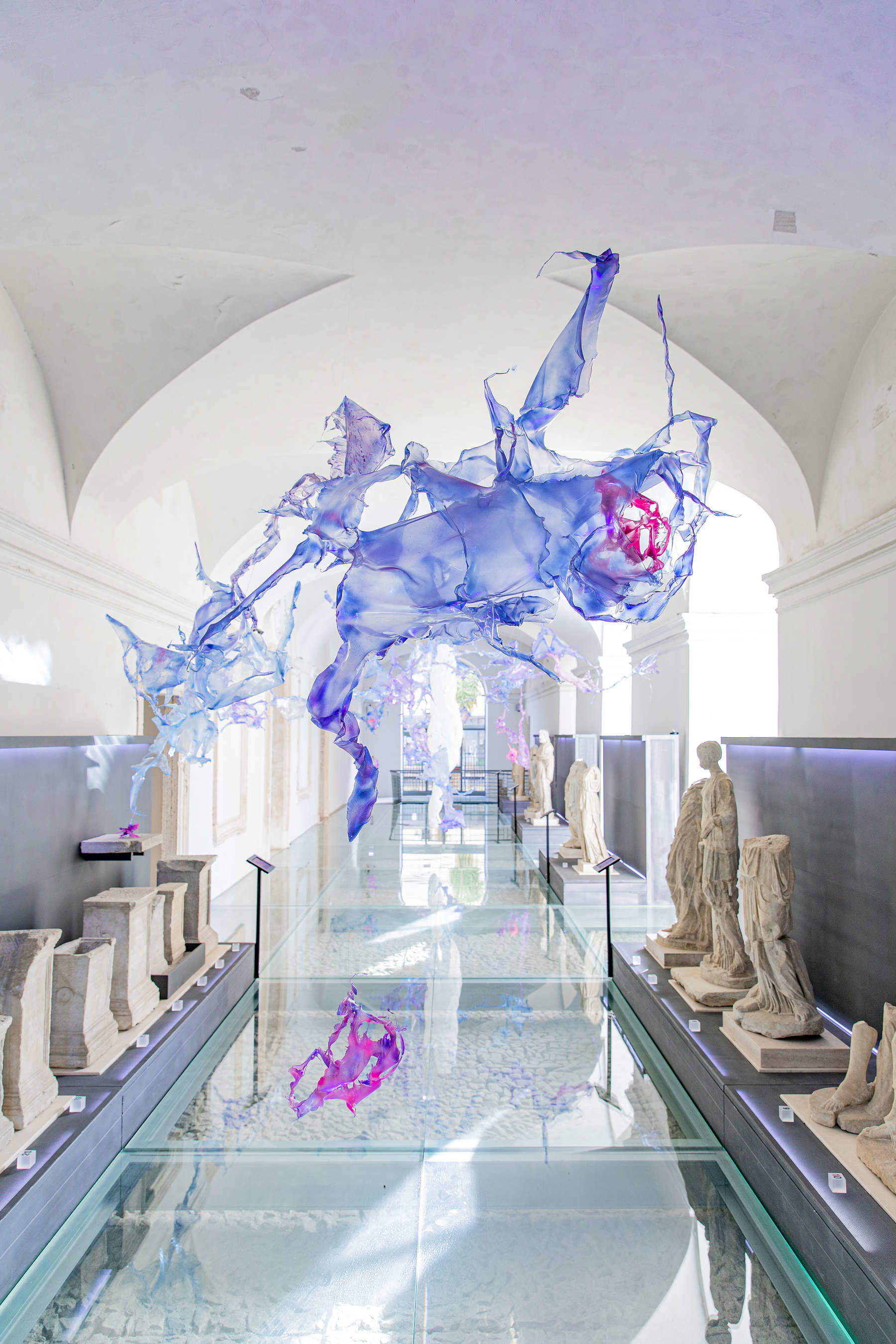 Aljoscha,
Aljoscha,If in 1912 Filippo Tommaso Marinetti, in his Manifesto of Futurism, stated that he wanted to glorify war, considered “the only hygiene of the world,” advocating a radical social change, another vision of life, which later resulted in two world wars, Blooming Sking of Brain Paradise stands instead as a’work of art that does not succumb to the horrors of war, but includes and accords space to the complexity of our worlds, offering itself to the audience as the revelation of a possible peace that transcends all barriers, even the most tragic, and is rooted in the poetics of free thought. A perfect example of the artist’s attempt to create a new aesthetic for the future of organic life: creating art objects that express the visual possibilities of synthetic biology and bioethics.
“Man,” says Aljoscha, “over time, has become one of the most dangerous predators, turning into a threat especially to himself, and all biological forms in our predominantly ultrasocial and pseudoanthropocentric ethics are seen as nothing more than resources. [...] We have to change our attitude towards biology, life and social ideals and practically undergo a metamorphosis ourselves. I hope that from being a manic social predator we can transform ourselves into a new species, free from suffering, fear, aggression and intolerance of the unknown.”
Warning: the translation into English of the original Italian article was created using automatic tools. We undertake to review all articles, but we do not guarantee the total absence of inaccuracies in the translation due to the program. You can find the original by clicking on the ITA button. If you find any mistake,please contact us.



























